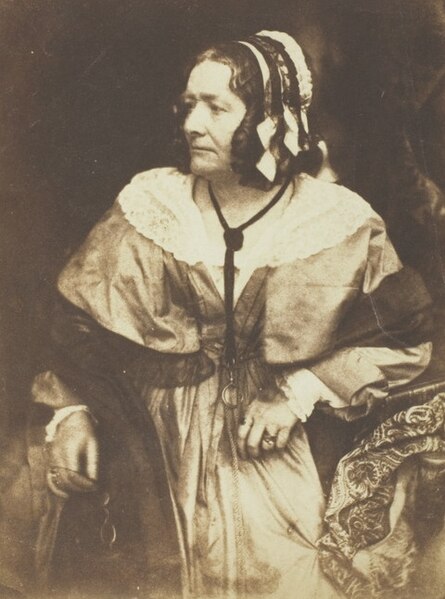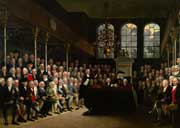
William Jerdan
The Autobiography of William Jerdan
Cruelty to Animals-Periodical Literature
「1852-3」William Jerdan, The Autobiography of William Jerdan, With His Literary, Political and Social Reminiscences and Correspondence During the Last Fifty Years 「Google Books」(London, 1853).
Breaking the ice is a great matter, and without claiming more for the “Literary Gazette” than I am justly entitled to attribute to its friends and contributors at all times from this, its very commencement, I may say that it broke the ice in many an important quarter, and let in fresh streams of science, arts, and literature to the national pastures. Already it had broached the subject of cruelty to animals, and advocated the measures which have since been adopted and are now humanely acted upon. In its infancy, after denouncing the sins of permitting cruelty to insects in children, and other practices which were the initiatives to barbarity and the inductions to ruthless crime, I recorded the bequest of 600£ by a Worcestershire gentleman, M. T. Ingram, of Tickwell (be his name honoured), who had followed the course recommended just a year before by the “Literary Gazette,” and provided that an annual sermon should be preached by a clergyman in Birmingham to encourage and enforce humane treatment toward all dumb creatures. The passage which suggested this ran as follows:—”If people do these things in ignorance, it is quite time they should be set right. The relative duty we owe to God’s creatures might well become a part of education; and it would greatly credit the humanity of any individual who would bequeath a sum for an annual sermon, or sermons, on the subject of the duty of mercy, and the sin of cruelty to animals.” Often in future years was the same text dilated upon, and not without grateful fruits; and I refer to the operation of such efforts of the periodical press, not only with some self-satisfaction, but as a suggestion to the entire body of journalism, with all its powers for good or evil, how much even the humblest may effect towards the welfare of mankind by striking and harping upon the true chords of Christian and moral obligation, which almost invariably excite the desired and desirable responses in strange quarters and virtuous bosoms previously unknown and undreamed of. If, on similar grounds and for similar reasons, I may hereafter assume a credit to the “Gazette” for taking a lead in various propositions and plans for progressive improvement, I trust it will not be ascribed to vanity; but, if it is, I can only assert that it is the vanity of truth and indubitably due to the publication; and further, that it can do no harm by showing what may be done by every Paper, of any influence, which endeavours faithfully to fulfil its proper mission. (37-8)



